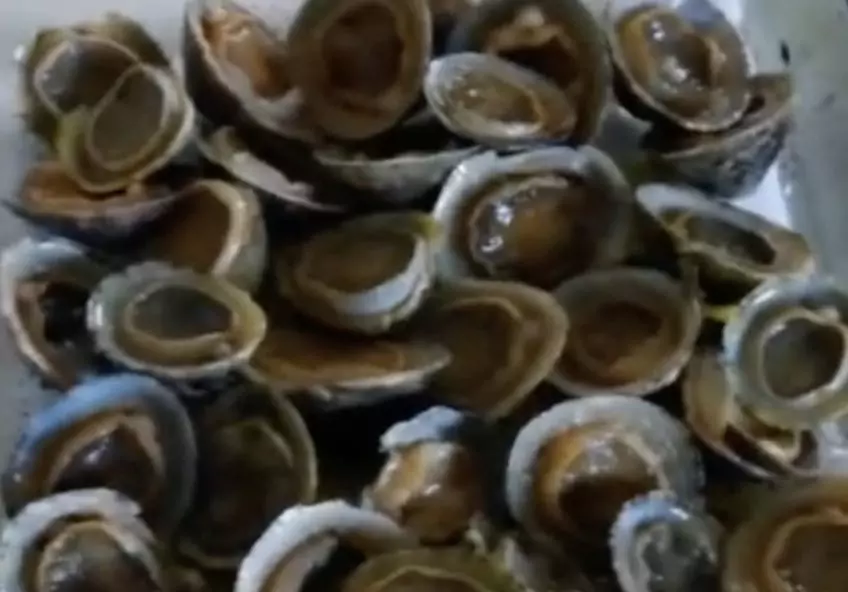If you’re a seafood lover, you may wonder whether limpets are safe to eat. Limpets are marine mollusks found along rocky shorelines and are often used as bait for fishing. But can they be consumed by humans?
Article Summary
- Yes, limpets are edible and safe to eat.
- Limpets are a popular food source in many coastal communities worldwide.
- Limpets are nutritionally rich and contain high protein, iron, and other essential minerals.
- However, properly cleaning and cooking limpets is essential to avoid potential health risks, such as shellfish poisoning.
- It is recommended to boil or steam limpets for at least 10-15 minutes before consuming them.
Many coastal communities worldwide have been consuming limpets for centuries, considered a delicacy in some regions. Limpets are nutritionally rich and contain high protein, iron, and other essential minerals.
However, properly cleaning and cooking limpets is essential to avoid potential health risks, such as shellfish poisoning.
Can You Eat Limpets?
The answer is yes; certain limpets are edible and have been consumed by coastal communities for centuries. However, not all limpets are safe to eat, and it’s essential to know which ones are safe and how to prepare them to avoid potential health risks properly.
In this section, we will explore limpets’ nutritional value, health benefits, and culinary uses.
Nutritional Value
Limpets are low in fat and calories, making them an excellent choice for those looking to maintain a healthy diet. They are also a good source of protein, with around 15 grams per 100 grams of meat. In addition, limpets are rich in vitamins and minerals, including vitamin B12, iron, and zinc.
| Nutrient | Amount per 100g |
|---|---|
| Protein | 15g |
| Calories | 90 |
| Fat | 1g |
| Vitamin B12 | 20mcg |
| Iron | 3mg |
| Zinc | 2mg |
Health Benefits
Aside from their nutritional value, limpets also offer a range of health benefits. For example, they are a good source of omega-3 fatty acids, linked to a reduced risk of heart disease and other chronic conditions.
Limpets are also high in antioxidants, which can help protect against cellular damage and reduce inflammation.
- Good source of omega-3 fatty acids
- High in antioxidants
- Potential anti-inflammatory properties
What do Limpets Taste Like?

As someone who loves trying new foods, I was curious about the taste of limpets. After doing some research and trying them myself, here’s what I found:
- Texture: Limpets have a soft, clam-like texture that can be slightly chewy.
- Flavor: Limpets have a slightly sweet taste that some describe as similar to shrimp or oysters. However, others find them to be somewhat sour or salty.
According to a source, limpets are crunchy and have a sweet and savory taste similar to mussels. They are not poisonous and are even used in the jewelry industry.
Are limpets poisonous?
While limpets are edible, there are some safety concerns to consider when consuming them. Here are some potential risks:
Risks of Eating Raw Limpets
Raw limpets can lead to foodborne illness, which may contain harmful bacteria and viruses. These microorganisms can cause vomiting, diarrhea, and other gastrointestinal symptoms. It is recommended to cook limpets thoroughly before consuming them.
Possible Allergic Reactions
Some people may have an allergic reaction to limpets. Symptoms of an allergic reaction can include hives, itching, swelling, and difficulty breathing. If you experience these symptoms after consuming limpets, seek medical attention immediately.
It is also important to note that some people with shellfish allergies may be sensitive to limpets, as they are a type of mollusk.
| Tip | Explanation |
|---|---|
| Cook thoroughly | Thoroughly cooking limpets can help reduce the risk of foodborne illness. |
| Limit consumption | Consuming limpets in moderation can help minimize the risk of toxin exposure. |
| Know your source | Consuming limpets from polluted waters can increase the risk of toxin exposure. |
Sources: Bushcraft Hub, Oregon.gov, ScienceDirect
frequently asked questions
Here are some frequently asked questions about limpets:
Yes, limpets are a good source of protein, vitamins, and minerals. They are low in fat and calories and are a great addition to a healthy diet. Limpets are also a good source of iron, which is important for maintaining healthy blood cells.
While limpets are generally safe to eat when cooked properly, there are some potential risks to be aware of. Limpets can accumulate toxins from the water they live in, so it is important to only eat limpets from clean, unpolluted waters. Additionally, some people may be allergic to limpets, so it is important to be aware of any potential allergic reactions before consuming them.
Before consuming limpets, it is important to make sure they are safe to eat. Look for limpets that are firm and have a strong, healthy shell. Avoid limpets that are soft or have damaged shells, as these may be signs of contamination or illness. Additionally, only consume limpets that have been harvested from clean, unpolluted waters.





Leave a Reply
You must be logged in to post a comment.